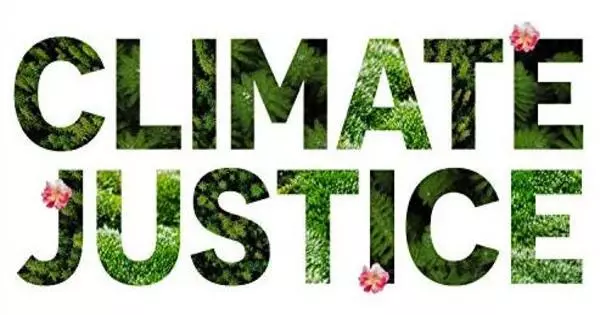Climate justice refers to the concept that the impacts of climate change are not distributed equally and that those who contribute the least to the problem are often the ones who suffer the most. It is a concept that addresses the just division, fair sharing, and equitable distribution of the burdens of climate change, as well as climate change mitigation and responsibilities.
Climate justice also encompasses the idea that solutions to the climate crisis should be fair, equitable, and inclusive, and should prioritize the needs and rights of marginalized and vulnerable communities. “Justice,” “fairness,” and “equity” are not synonymous, but they belong to the same family of related terms and are frequently used interchangeably in negotiations and politics.
At its core, climate justice is about recognizing the inherent inequality and injustice of the current global economic and political systems that have contributed to climate change. This includes recognizing the historical responsibility of developed countries for the bulk of greenhouse gas emissions and the disproportionate impacts of climate change on communities of color, low-income communities, Indigenous communities, and other marginalized groups.
Using these terms, applied ethics, research, and activism approach anthropogenic climate change as an ethical, legal, and political issue, rather than one that is purely environmental or physical in nature. This is accomplished by linking the causes and effects of climate change to concepts of justice, specifically environmental and social justice. It investigates concepts such as equality, human rights, collective rights, and historical climate responsibilities.
Climate justice is the idea that addressing the challenges of climate change must go hand in hand with addressing social and economic inequality. It recognizes that the impacts of climate change are not equally distributed, and that the most vulnerable and marginalized communities are often the hardest hit.
Climate justice actions can include the growing global body of legal action on climate change issues. In 2017, a report of the United Nations Environment Programme identified 894 ongoing legal actions worldwide. Climate justice is an aspect of SDG 13 under UN Agenda 2030.
Climate justice advocates call for transformative change that addresses the root causes of climate change and creates a more equitable and sustainable future for all. This includes policies and actions that promote clean energy, protect natural resources, reduce emissions, and promote social and economic justice. This can include initiatives such as increasing access to renewable energy, improving infrastructure and disaster preparedness, and supporting the transition to a more sustainable and equitable economy.
















